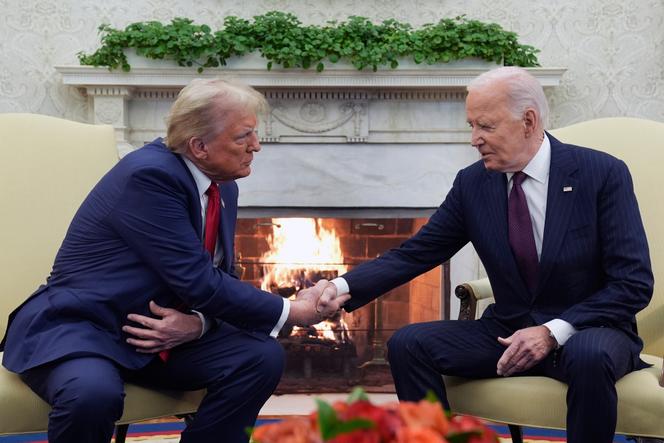


Donald Trump is about to return to the Oval Office with Congress in his grasp. By winning a 218th seat on Wednesday, November 13 – while votes are still being counted in a handful of constituencies – the Republican Party has retained the absolute majority in the House of Representatives obtained during the midterm elections in 2022, traditionally tricky for the party occupying the presidency.
This is a good result, given the high number of Republican candidates in districts that had gone to Joe Biden in 2020. The narrow 220-212 majority in the outgoing assembly is unlikely to be expanded, however, and the appointment of several Republican representatives to the incoming administration (Elise Stefanik, Matt Gaetz and Michael Waltz) will further reduce it until they are replaced.
Retaining control of the House comes on top of the Senate swing achieved on November 5. By losing four Senate seats in states won by Trump (Ohio, Pennsylvania, Wisconsin, West Virginia), the Democrats recorded their biggest defeat since 2014. It could have been even more devastating had their candidates not won in four key states won by the Republican (Arizona, Nevada, Michigan and Wisconsin), which at least puts the scale of the party's victory into proportion.
For Trump, however, this math is not all that matters. Along with the Republican majority in the Senate comes the end of the long reign of their leader for 17 years, 82-year-old Mitch McConnell, who had a notoriously bad relationship with the former businessman. Trump tried to capitalize on this end of an era by attempting to influence the choice of his successor, but to no avail, as McConnell's right-hand man, John Thune, prevailed on Wednesday.
The Republican Party owes a great deal to the octogenarian senator. He made the most of the Senate's countervailing power against Barack Obama's Democratic administration. He also developed a strategy of systematic filibustering of federal judicial nominations under Obama. Then, he helped abolish the filibuster (granting blocking power to the minority in the absence of a 60-vote majority to override it) for the confirmation of Supreme Court justices, which previously required consensus nominees.
McConnell's name will also remain associated with the freezing of conservative Justice Antonin Scalia's seat, after Scalia's brutal death in February 2016, until Trump's election, on the grounds of the proximity of the presidential election. This led to the hasty confirmation of conservative Justice Amy Coney Barrett following the death of progressive icon Ruth Bader Ginsburg, just three months before Trump lost the presidential election to Biden.
You have 53.59% of this article left to read. The rest is for subscribers only.
